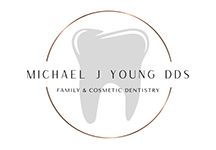 In a world where nearly everything new is designed to stimulate and entertain, losing sleep is easier than ever before. Instead of resting, you might want to catch up on new episodes of your favorite program, play around with your new phone or tablet, or get ahead on the next day’s workload. Sometimes, however, you might be losing sleep without even realizing it. The term, apnea, literally means “to stop breathing” in Greek, and sleep apnea describes a condition where your breathing periodically stops at night. Even though you think you’re sleeping soundly, you might soon begin exhibiting signs of sleep deprivation and fatigue.
In a world where nearly everything new is designed to stimulate and entertain, losing sleep is easier than ever before. Instead of resting, you might want to catch up on new episodes of your favorite program, play around with your new phone or tablet, or get ahead on the next day’s workload. Sometimes, however, you might be losing sleep without even realizing it. The term, apnea, literally means “to stop breathing” in Greek, and sleep apnea describes a condition where your breathing periodically stops at night. Even though you think you’re sleeping soundly, you might soon begin exhibiting signs of sleep deprivation and fatigue.
Central and Obstructive Sleep Apnea
The two major types of sleep apnea are categorized as central and obstructive. Central sleep apnea (CSA) occurs when certain neurological signals misfire, and the muscles that control your breathing cease to move. Patients with obstructive sleep apnea (OSA) stop breathing when their airway is clogged by abnormal oral tissues, such as enlarged tonsils or the base of your tongue. OSA is marked by excessive snoring, which is often the indicator that warns the patient to seek an assessment.
Is it Snoring, or More Serious?
Not everyone who snores suffers from OSA, but all OSA patients snore as a result. The sound results from the partial obstruction of the airway, which forces your breath through a smaller-than-usual passage. The increased air pressure causes your oral tissues and the walls in your throat to vibrate violently. Snoring associated with OSA typically follows a distinct pattern; the sound grows louder as room in your airway shrinks, and then stops suddenly as your breathing ceases. After a few moments, the silence is broken with a gasp as your body starts breathing again, then the cycle repeats itself (up to hundreds of times a night).
Treating OSA at the Dentist’s Office
If you’ve been diagnosed with obstructive sleep apnea, Dr. Young can prescribe a custom-designed, non-invasive oral appliance to help you stop snoring and sleep better. The appliance will hold your jaw in a slightly forward position to maintain an open airway, preventing oral tissues from obstructing it.
About Your Lafayette Dentist:
To request more information about how to modern dentistry can help restore and maintain your oral health, or to schedule a dental checkup and cleaning with Dr. Young, contact our Lafayette dentist office at 337-237-6453. We serve families living in Breaux Bridge, Broussard, Scott, Youngsville, and surrounding communities. Dr. Young also invites you to find us on Facebook, where you’ll find news, tips, and valuable resources.




